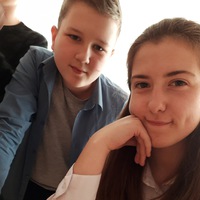
Put the verbs into the right form. 1. If I (to know) the result now, I would phone him at once. 2.
I wish I (to know) Spanish. 3. If I saw a nice T-shirt, I (buy) … it. 4. Children will play snowballs, if it (to snow). 5. If he were in town, he (to help) us. 6. If it rains this afternoon, I (take)… my umbrella. 7. My father would have more free time if he (not to read) so many newspapers. 8. If you (study) … for a higher qualification, you (get) … a better job next year. 9. If you sent the letter by first class mail, it (get) … there the following day. 10. If the weather is fine, we (go) for a picnic. 0
0
 0
0
Ответы на вопрос
 Внимание! Ответы на вопросы дают живые люди. Они могут содержать ошибочную информацию, заблуждения, а также ответы могут быть сгенерированы нейросетями. Будьте внимательны. Если вы уверены, что ответ неверный, нажмите кнопку "Пожаловаться" под ответом.
Внимание! Ответы на вопросы дают живые люди. Они могут содержать ошибочную информацию, заблуждения, а также ответы могут быть сгенерированы нейросетями. Будьте внимательны. Если вы уверены, что ответ неверный, нажмите кнопку "Пожаловаться" под ответом.

2 knew/had known
3 would buy
4 snows
5 would help
6 will take
7 didn't read
8 study-will get
9 would get
10 will go
 0
0
 0
0

1. If I knew the result now, I would phone him at once. 2. I wish I knew Spanish. 3. If I saw a nice T-shirt, I would buy it. 4. Children will play snowballs, if it snows. 5. If he were in town, he would help us. 6. If it rains this afternoon, I will take my umbrella. 7. My father would have more free time if he didn't read so many newspapers. 8. If you study for a higher qualification, you will get a better job next year. 9. If you sent the letter by first-class mail, it will get there the following day. 10. If the weather is fine, we will go for a picnic.
In these sentences, we are asked to put the verbs into the right form. The verbs in the brackets should be conjugated correctly based on the context and tense of the sentence. Let's go through each sentence and determine the appropriate verb form:
1. The sentence is in the second conditional form, indicating a hypothetical situation in the present. The verb "know" should be in the past simple tense, and the verb "phone" should be in the present conditional tense. Therefore, we have "If I knew the result now, I would phone him at once."
2. The sentence expresses a wish or desire. The verb "know" should be in the past simple tense. Therefore, we have "I wish I knew Spanish."
3. The sentence is in the first conditional form, indicating a possible future action. The verb "buy" should be in the present conditional tense. Therefore, we have "If I saw a nice T-shirt, I would buy it."
4. The sentence is in the first conditional form, indicating a possible future action. The verb "snow" should be in the present simple tense. Therefore, we have "Children will play snowballs, if it snows."
5. The sentence is in the second conditional form, indicating a hypothetical situation in the present. The verb "be" should be in the past simple tense, and the verb "help" should be in the present conditional tense. Therefore, we have "If he were in town, he would help us."
6. The sentence is in the first conditional form, indicating a possible future action. The verb "take" should be in the future simple tense. Therefore, we have "If it rains this afternoon, I will take my umbrella."
7. The sentence is in the second conditional form, indicating a hypothetical situation in the present. The verb "not read" should be in the present simple tense (negative form). Therefore, we have "My father would have more free time if he didn't read so many newspapers."
8. The sentence is in the first conditional form, indicating a possible future action. The verb "study" should be in the present simple tense, and the verb "get" should be in the future simple tense. Therefore, we have "If you study for a higher qualification, you will get a better job next year."
9. The sentence is in the first conditional form, indicating a possible future action. The verb "get" should be in the future simple tense. Therefore, we have "If you sent the letter by first-class mail, it will get there the following day."
10. The sentence is in the first conditional form, indicating a possible future action. The verb "go" should be in the future simple tense. Therefore, we have "If the weather is fine, we will go for a picnic."
By conjugating the verbs correctly, we ensure that the sentences convey the intended meaning and follow the appropriate grammatical rules.
 0
0
 0
0
Топ вопросов за вчера в категории Английский язык
Последние заданные вопросы в категории Английский язык
-
Математика
-
Литература
-
Алгебра
-
Русский язык
-
Геометрия
-
Английский язык
-
Химия
-
Физика
-
Биология
-
Другие предметы
-
История
-
Обществознание
-
Окружающий мир
-
География
-
Українська мова
-
Информатика
-
Українська література
-
Қазақ тiлi
-
Экономика
-
Музыка
-
Право
-
Беларуская мова
-
Французский язык
-
Немецкий язык
-
МХК
-
ОБЖ
-
Психология
-
Физкультура и спорт
-
Астрономия
-
Кыргыз тили
-
Оʻzbek tili





















